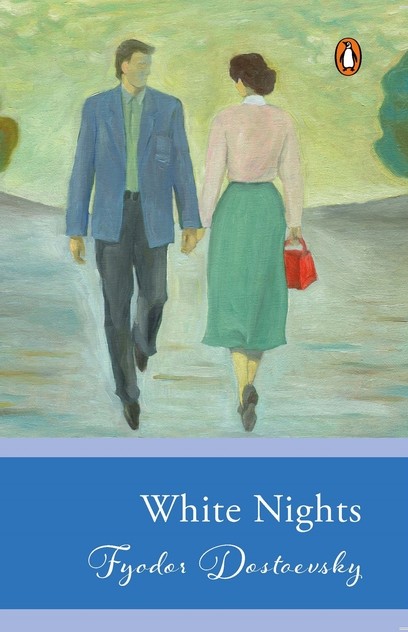Fyodor Dostoevsky's White Nights is a masterclass in the art of storytelling. It delves into a sea of emotions, all subtly hidden beneath the surface. This novella, consistent with Dostoevsky's ongoing theme of the Alienated Dreamer, was one of the first to introduce this motif. It's a narrative style that he later elaborated on in The Notes from Underground, Crime and Punishment, and The Brothers Karamazov.
In the novella White Nights, an anonymous narrator describes how he knows everyone he passes by sight on his daily walks and has never had a conversation with any of them. He even imagines having conversations with the structures of St. Petersburg. That is the extent of his loneliness. He just fantasizes about it since he is too shy to interact with people in real life. He is a dreamer who takes comfort in his imagination—that is, until he befriends Nastenka, a lonely young woman with a sad past. The guy who was always talking to buildings now had someone with whom to spend time and discuss anything.
There is no denying that the story is incredibly relatable and compelling. Unrequited love and loneliness are common experiences, for sure. Dostoyevsky's ability to elicit strong feelings of identification from us is truly remarkable. The majority of the story revolves around the two main characters and their feelings of alienation, bonding, and reflection. Sadly, our protagonist soon faces harsh reality and chooses to accept it in a humble way. I was particularly taken by Dostoyevsky's ability to capture a wide range of complex emotions in this beautiful story.
The romantic soul is unaware of the peaceful, well-balanced journeys into domestic bliss, much like a seesaw or a rollercoaster ride. The owner finds himself disoriented, depleted, and stranded in his solitary fortress as it swings between extremes of happiness and depression. The novella's best sections are saved for last and are addressed directly to the readers, encouraging us to enjoy each moment and make the most of our youth:
"Where have you buried your best days? Have you lived or not? Look, one says to oneself, look how cold the world is growing. Some more years will pass, and after them will come gloomy solitude; then will come old age trembling on its crutch, and after it misery and desolation. Your fantastic world will grow pale, your dreams will fade and die and will fall like the yellow leaves from the trees..."
This story could be perfect for you if you are looking for a love story that inspires hope despite leaving you scarred. You might feel a range of emotions in the end, including happiness, and tears. More accurately, it is a eulogy to the dreamers' souls, most of whom are lost in the never-ending pit of perish.
 Book Club, IIT Kanpur
Book Club, IIT Kanpur
